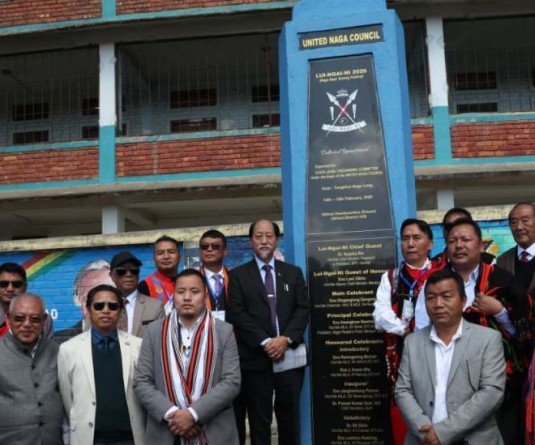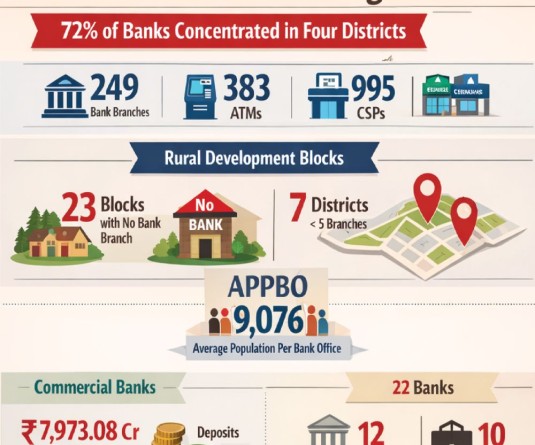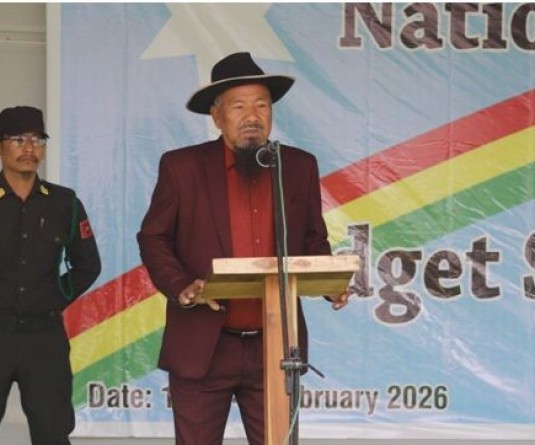
Refers to 1937 Rules and Village Councils Act
Dimapur, August 17 (MExN): The Nagaland Bar Association (NBA) submitted a representation to the state government on August 17 stating that the act of constituting Naga Tribunals was unnecessary.
The Bar’s representation comes in the backdrop of the state government calling for a consultation with tribal hohos on the prospect of ‘Naga Tribunals for adjudication as per customary law,’ for which a meeting has been scheduled on August 18 in Kohima.
“Since the Rules for the Administration of Justice and Police in Nagaland, 1937 covers the administration of customary law, the constitution of Naga Tribunals is unnecessary,” the representation said.
It stated that the prevailing 1937 Rules provide for the administration of customary law at the village level and between persons belonging to the same tribe. In the case of disputes between two villages, it said that the Rules provide for resolving the dispute by a body of elders or ‘panchayat’ appointed by the Deputy Commissioner, while adding that the rules are specific “in relation to the non-application of customary law to those who are not Nagas.”
“The administration of customary law is through the Village Councils, the Dobashis, the District Administration and Judicial Officers recruited under the Nagaland Judicial Service Rules 2006. Therefore, apart from the authorities empowered by law to adjudicate as courts there can be no other courts or Tribunals,” it reminded.
The NBA further highlighted what it termed as a “general misconception” on the scope of Article 371 (A) in relation to the Customary Laws of the Nagas. “It may be appreciated that there are standards for valid customary law such as antiquity, continuity, conformity with public policy and reasonableness,” it said, while maintaining that as per general principle of law, “statutory law overrides customary law unless expressly saved.”
It also referred to section 3 of the Nagaland Village Councils (4th Amendment) Act 2009 to substantiate its assertion. This section, it said, already provides statutory recognition to “the various Tribal Councils/Hohos/Unions/Organisations existing in Nagaland.”
Conversely, it held that the recognition of tribal councils, while innocuous, could also lead to complications.
“That these bodies should be constituted in accordance with ‘respective traditions, customary practices’ is self contradictory. It may be appreciated that Tribal Councils/Hohos/Unions/Organisations are a relatively new phenomena in Naga society,” it said.
As per the NBA, the tribal bodies “are either without any Juristic existence and/or they are creatures of statutes,” which would mean that they are not constituted under “traditions, customary practices and usages.”
It further raised a perceived misinterpretation of section 26 of the Village Councils Act. “This provision has been interpreted by Officers of the State as well as the huge number of Tribal Councils/Hohos/Unions/Organisations to mean the empowerment to function as Courts/Tribunals. This is a patently erroneous interpretation.”
Summing it up, the NBA reiterated that the Rules of 1937, provides adequate safeguards for customary laws and that there is no need to constitute Tribunals. On the same note, it said that the Nagaland Village Councils (Fourth Amendment) Act, 2009 is not an enactment for the purposes of conferring judicial authority to the Tribal Councils/Hohos/Unions/Organisations.
Moreover, it said that those entrusted with the responsibility of administering customary laws must have the necessary skill set.
“There has also been much talk about the codification of Customary Laws. This is also related to the constitution of Naga Tribunals,” it said. On this, the NBA maintained that constituting Naga Tribunals would imply the demise of customary laws.
It asserted, “To all affects and purposes, law that is codified becomes statutory law. In our enthusiasm to preserve and protect our customary practices and usages, we should not be the reason for their decimation.”






